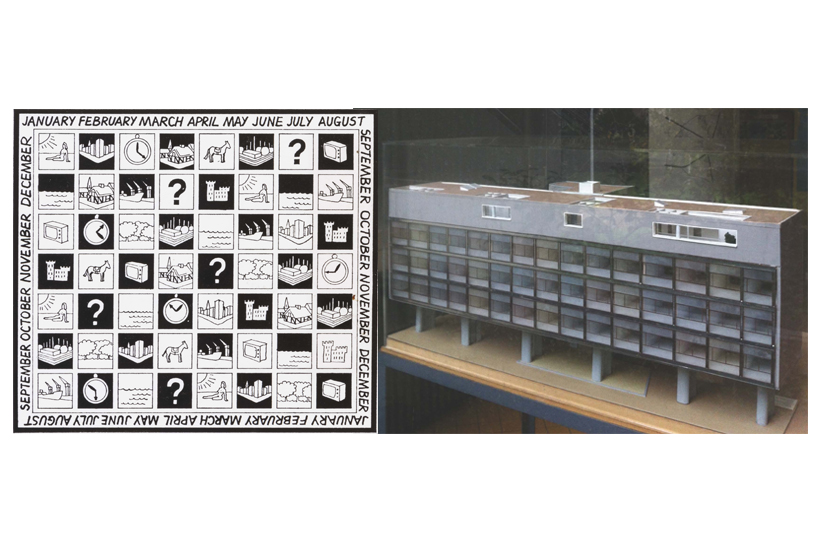
Selected Topics in Architectural History and Theory: Architecture, Avant-Garde, Market
ARC3319H S
Instructor: Mary Louise Lobsinger
Meeting Section: L0101
Wednesday, 9:00 - 12:00pm
The image to the left shows a board game intended to provoke thinking about planning regulations and conventional zoning laws. Here the architect proposes a time-based game that would force uncomfortable relationships between users, programs, and real estate value. This is a strategy closely aligned with the motivations and marketing outcomes of neoliberalism. The image to the right shows the model of the Pavilion Suisse kept in a glass display case in the foyer of the actual Pavilion Suisse in Paris. This is the culture of architecture contained, a reminder of the perfection of the concept and model against the material and economic realities of inhabitation. These examples stake out opposing stances within modernist discourse around avant-gardism: oppositional in technologies and techniques, one representing a process-oriented anti-formalism and the other the aesthetic formalism of so-called standardization. Images and narratives such as these circulate and re-circulate to affirm an institutionalized economy and a politics of architecture and its histories.
This seminar will explore concepts and works that affirm and challenge an institutionalized economy of avant-gardism. The seminar will interrogate “hinge” concepts, such as, apparatus, medium, representation, rationality, rationalism, enumeration, standardization, system, environment, labour, market, and neoliberalism as a way of thinking. The seminar asks, what use is history for understanding the social and political lineage of contemporary technologies and technique-mediated environments? How can history challenge the continued essentialist culturalism within architecture and urbanism?
Students are expected to contribute to weekly seminar discussions of required readings. Course materials include readings from media theory, system analysis, political economy and material evidence from architecture, planning, and urban history. Each student will be responsible for presenting a critical explanation of at least one weekly reading and will prepare an annotated bibliography that documents a proposed research project.

